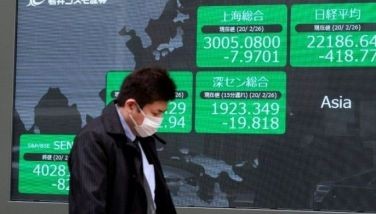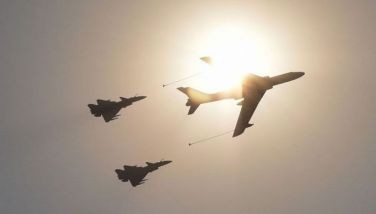IOC in contact with French prosecutors in corruption probe
LAUSANNE — The International Olympic Committee has applied to be a party to the investigation by French authorities into corruption in track and field that could spread to possible bribery in the bidding for the 2016 and 2020 Games.
The IOC said yesterday it was in "close contact" with French prosecutors, who have been investigating bribery and money-laundering involving doping cover-ups at the International Association of Athletics Federations.
The Guardian newspaper reported yesterday that the prosecutors have widened the probe to include the bidding for the 2016 and 2020 Olympics, which were awarded to Rio de Janeiro and Tokyo.
"The IOC has been in close contact with the French prosecutors since the beginning of this investigation last year," the Olympic body said in a statement. "The IOC's chief ethics and compliance officer had already asked for the IOC to be fully informed in a timely manner of all issues that may refer to Olympic matters and has already applied to become a party to the investigations led by the French judicial authorities."
The Guardian reported in January that it had seen leaked emails linking the son of former IAAF President Lamine Diack to alleged "parcels" to be delivered to six IOC members during the bidding for the 2016 Games.
The British newspaper said the emails were sent by Papa Massata Diack to a Qatari business executive in May 2008. The Qatari capital, Doha, was bidding for the 2016 Olympics at the time.
The Guardian said the email suggested that six people, referred to by their initials which corresponded with six IOC members at the time, requested "to have their parcels delivered through Special Adviser in Monaco." The paper said the "special adviser" was believed to be Lamine Diack, who was then an IOC member.
The Guardian said it wasn't known whether any "parcels" were sent. In any case, a month after the email was sent, Doha failed to make the list of finalists in the 2016 bidding.
Papa Massata Diack was banned for life by the IAAF ethics commission in January for corruption and cover-up allegations linked to Russian doping. He has appealed to the Court of Arbitration for Sport.
Papa Massata Diack is also wanted for questioning by prosecutors in France. Interpol has issued a wanted notice for him to face corruption charges in France.
The elder Diack, who headed the IAAF for 16 years until he stepped down in August, is accused by French prosecutors of pocketing more than 1 million euros ($1.1 million) from bribes in exchange for covering up doping cases, mainly involving Russian athletes.
Lamine Diack resigned as an honorary IOC member in November, a day after he was provisionally suspended by the IOC executive board. He served as a full IOC member for 15 years until 2014.
Possible wrongdoing involving Lamine Diack and the 2020 Olympic bid race was cited in a World Anti-Doping Agency commission report into IAAF corruption.
A footnote to the report indicated that Diack was prepared to sell his vote in exchange for a $5 million sponsorship of IAAF events. The report suggested that Diack dropped his support for Istanbul's bid because Turkey refused to pay, and backed Tokyo after the Japanese did pay.
In January, the IOC said it had asked the WADA panel for transcripts from its report.
Tokyo organizers said the allegation was "beyond our understanding," while Turkey's Olympic committee said Diack's reported demand was not the reason Istanbul lost.
Tokyo defeated Istanbul 60-36 in the final round of IOC voting in 2013 in Buenos Aires.
The IOC endured its worst corruption scandal in the late 1990s, when 10 members resigned or were expelled for receiving improper inducements during Salt Lake City's winning bid for the 2002 Winter Games. The IOC adopted a series of reforms, including a ban on member visits to bid cities, and insists that the current bidding process is above board.
- Latest
- Trending
































